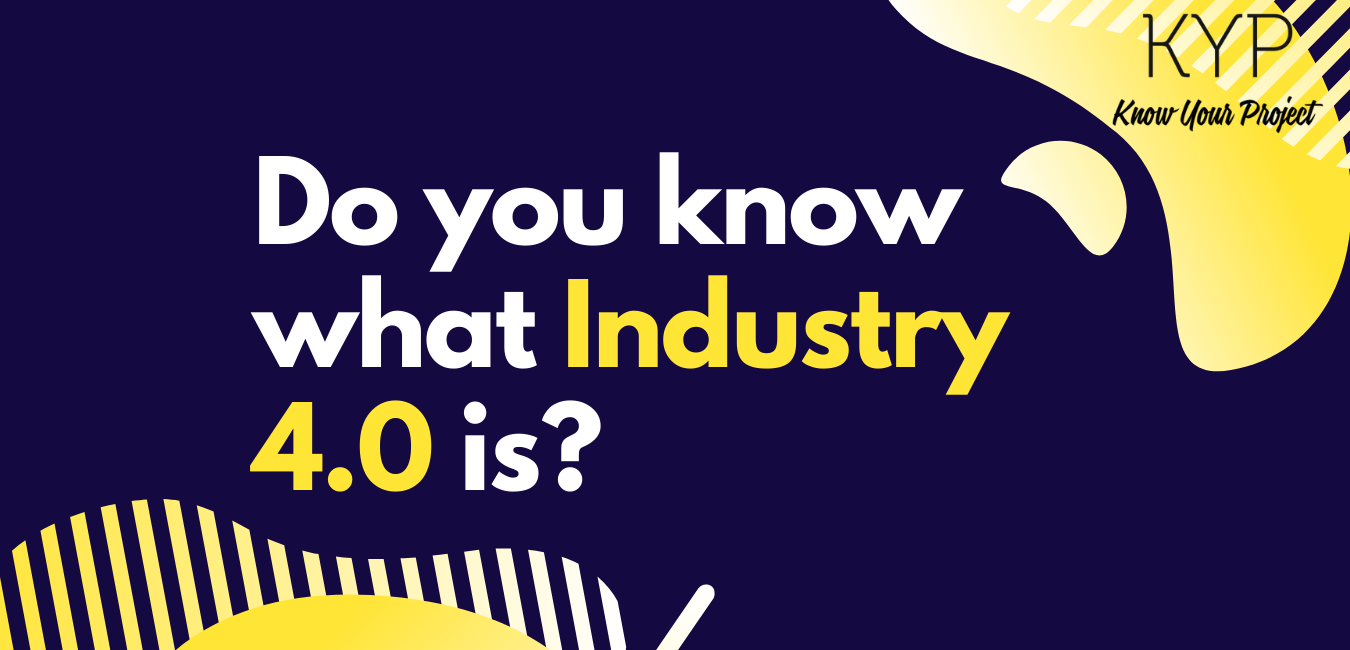Do you know what Industry 4.0 is?
In response to the rapid digitalization of the world, there is now a fourth ‘wave’ of the industrial revolution, an era called “Industry 4.0.” In which businesses manufacture their products using smart technologies to improve quality, distribute their products, and lower the cost of production.
The dynamic practice relies on advanced technologies such as cyber-physical systems, the Internet of Things, Artificial Intelligence, cloud computing, and large-scale machine-to-machine communication in maintaining its operations.
Moreover, smart factories have innovative features such as sensors, robotics, embedded software, and self-monitoring to improve communication, self-monitoring, and the collection of data to improve the overall experience.
What are the main components of industry 4.0?
Industry 4.0 is using extensively integrated technology to digitalize the manufacturing process and the developmental paths. The key components are:
Cyber-physical systems:
It is an innovative computer system in which the mechanism is operated using advanced computer algorithms. It generates a virtual copy of the real world and can make its own decisions without relying on outside help.
Internet of Things:
It is an internet-connected system of objects that are embedded with software to connect and share data over the internet.
Computer system resources:
The availability of the most advanced and innovative resources.
Cognitive computing:
Refers to technology that uses machine learning, AI, reasoning, etc—to copy the operations of a human brain and to improve the decision-making process.
What are the primary principles of Industry 4.0?
The 4 distinctive design principles of Industry 4.0 are:
Interconnection:
The potential to connect and communicate using the Internet of Things between people, machines, sensors, and devices.
Technical assistance:
Utilizing advanced technology to diagnose problems and assisting people in their intact decision-making and problem-solving skills.
Transparency of Information:
The smart factories provide extensive data to reach a conclusive decision as the interconnectivity gathers the data from every part of the manufacturing process and identifies the primary areas where development will enhance the efficiency of the factory.
Decentralized decisions:
The cyber-physical system can formulate its own decisions and functions effectively without any human interference using computer algorithms.
What are the benefits of using Industry 4.0?
- It increases the productivity level as the resources are allocated more effectively which enables fast production.
- It promotes efficiency as the machine downtime is reduced, products are produced at a faster rate, and automated reporting to keep progress in check.
- It increases information sharing and promotes collaborative work as machine-to-machine learning can make changes along the production lines in any department.
- It is cost-effective as less labor is needed and much of the work is completed by customized AI models.
- It generates huge profits as the risk of error is reduced.
- It improves customer service as automated tracking and traceability can quickly solve any problems.
- It increases flexibility and agility.
- It creates innovation in different sectors due to extensive data banks.
How to incorporate Industry 4.0 technology in your factories?
To kick start the process one needs to be able to monitor the functions of the factories remotely and update all the primary data remotely through incorporating robust internal processes.
The next step is to install sensors and Internet of Things equipment that can collect data from different stages of the manufacturing process. They collect the data in data lakes and analyze the data using BI tools such as Power BI. Later on, the collected data is utilized to make predictions regarding the most profitable sales or to diagnose any possible error in the future to avoid any loss using AI models.
Incorporating AI and automation technology in the factories to predict profits and loss is a huge step to ensure the smooth running of the factories and boost efficiency and profits.
The last step is achieved when the factory has AI customized models running in the system and can make its own decisions depending upon the situation without any human intervention. This is called machine-to-machine communication and it reduces the risk of using human labor in factories and shifts their focus towards innovation.
Takeaway:
According to a case study conducted, it is shown that implementing industry 4.0 exceeds the predictions and guarantees results. There is a 15-20% improvement in production, around 35-45% quality is enhanced, 65-75% productivity of the factory as a whole is boosted and 35-40% resources are effectively allocated. Therefore, many factories are moving towards this technology to compete in the digitalized world and improve their performance.
For example, a Chinese company Bosch has implemented industry 4.0 to boost output by 10% by reducing downtime and optimizing the processing time. Hence, implementing industry 4.0 technology in the factories will open new doors of opportunities and enhance their credibility in the emerging markets.









One Comment
Comments are closed.